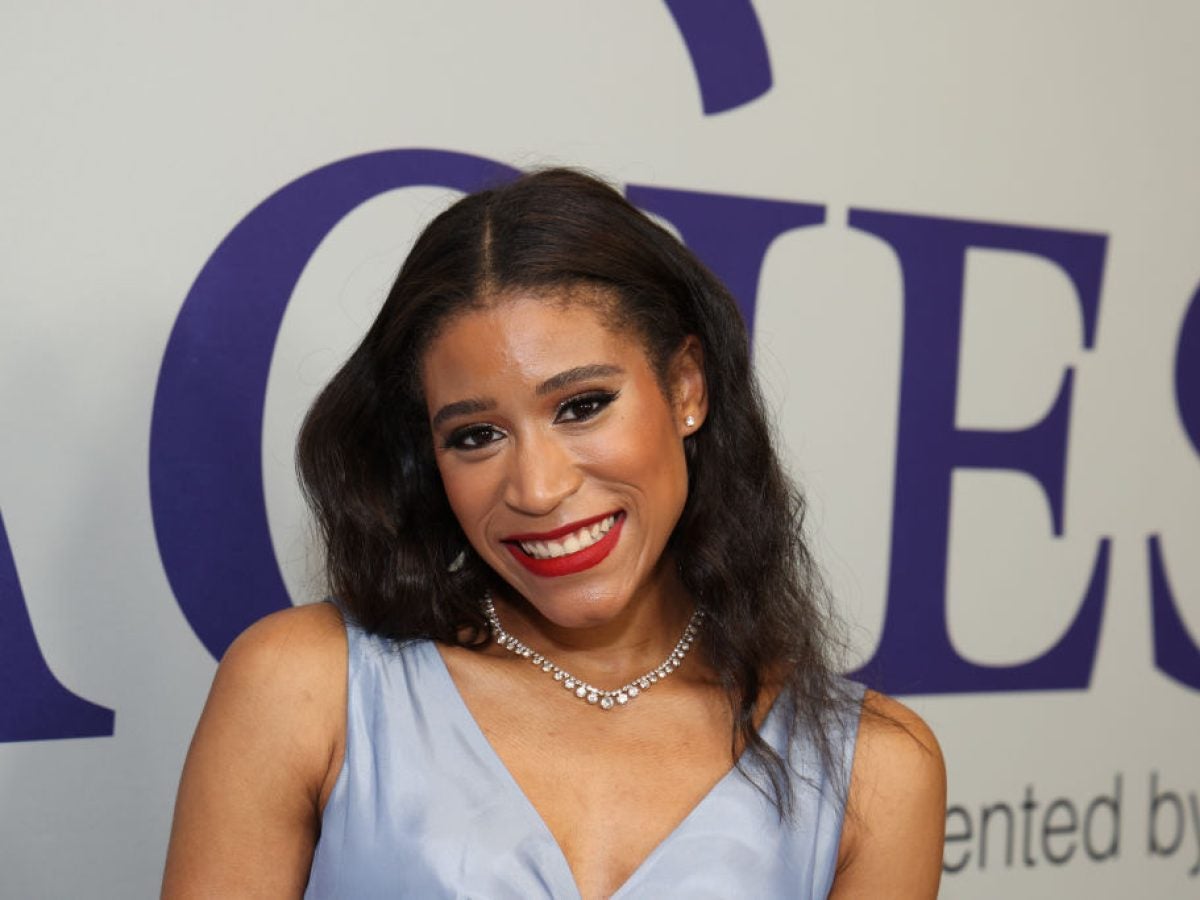
Amber Ferguson didn’t study journalism, but she always knew she wanted to write. This is ironic since, as a young girl she lagged behind in her elementary reading levels. Over time her teachers closely tracked her comprehension, and one day while completing a free writing assignment, Ferguson wrote a simple sentence: I like cats. By the end of the year she was able to write two full pages. This was one of the earliest glimmers she saw in recognizing the power of her words, and she hasn’t taken that for granted since.
Now Ferguson is a video editor and general assignment reporter for the Washington Post, one of the country’s most respected publications. Funnily enough, she didn’t even think she would become a journalist—she just wanted to write.
“I think I recognized early on how much storytelling moves the world, but I really didn’t see myself in journalism,” Ferguson tells ESSENCE.
Fortunately, the universe saw differently and led her on a path to work for major outlets including NBC News, CNN and the Huffington Post before joining the Post in 2017. Although her resume is filled with impressive roles, make no mistake, Ferguson paid her dues.
“When I moved to The Washington Post, it was a journey because I went from very new media, having worked as a video editor with HuffPost, to traditional media; it threw me for a loop,” she explains to ESSENCE. “I was working overnights from 9:00 PM to 5:00 AM for two years, and I was the only video editor overnights. Then on the side, I was writing stories. Honestly I was working from 9:00a to 9:00p, but through that I just created this muscle of being able to integrate both video and writing, and very few people do that.”
Through her work she’s been able to put together engrossing multimedia stories using text, video and photo to drive the stories she believes in. A majority of the most impactful of those stories center Black women, a welcome change among legacy media outlets that often overlook minority narratives.
One standout story sheds light on a pervasive issue that is rarely spoken about, Black male sperm shortages. Ferguson tackled the topic in 2022, but was inspired long before by her cousin’s fertility journey.
“In 2019 my cousin was in her mid-40s and she’s super accomplished professionally,” Ferguson says. “She was single, and she told me she couldn’t find a Black sperm donor. I thought she was being picky. But during the pandemic, I was on TikTok, and I saw a lesbian woman holding a biracial baby that was hers. People were just really vile in the comments asking her why she would choose to have a biracial baby? She said, There’s no Black sperm donors.”
Ferguson said that statement resonated with her because her cousin echoed the same sentiment. That revelation took her down a research journey where Ferguson found out that fewer than 2% of US sperm donors are Black.
“What does that mean for a Black woman? I didn’t want to do a piece that was just focused on statistics. I wanted to show the real journeys of these women because it means that you either have to have a biracial baby when you didn’t really want that, or you choose to go through a dangerous method to have a baby.”
She interviewed a dozen Black women who tried to find a Black sperm donor and couldn’t. Ferguson even ensured her story held sperm banks accountable and asked the tough questions for what seemed like the first time. Why do you have such few Black men donating?
“It’s a whole unknown world out there and it opened me up into this fertility space because the myth is that for Black women, it’s so easy to have a baby, but it’s not. We know about maternal mortality, but we don’t know about that other side of how challenging it can be to have the Black child you desire. This story really allowed me to start really centering Black women in my reporting.”
Those stories include an in-depth report on the true brand-building impact of ESSENCE Festival of Culture, Black women’s failed abortions and even Black women using Botox to save their edges.
Why is this kind of niche storytelling so important to her when she works for one of the most wide-reaching outlets in the world? Simple put—because she can.
“My team really believes in my ideas and encourages me to pursue them, which is rare in journalism nowadays because these news outlets are businesses at the end of the day, and they need to make money, not just tell the stories they want to tell,” Ferguson says. “I tell these types of stories because they matter. Some editorial cuts are always going to be made, but I will fight for certain things because I know a Black woman can relate to them. That just doesn’t happen enough, and I recognize the power in changing that. ”